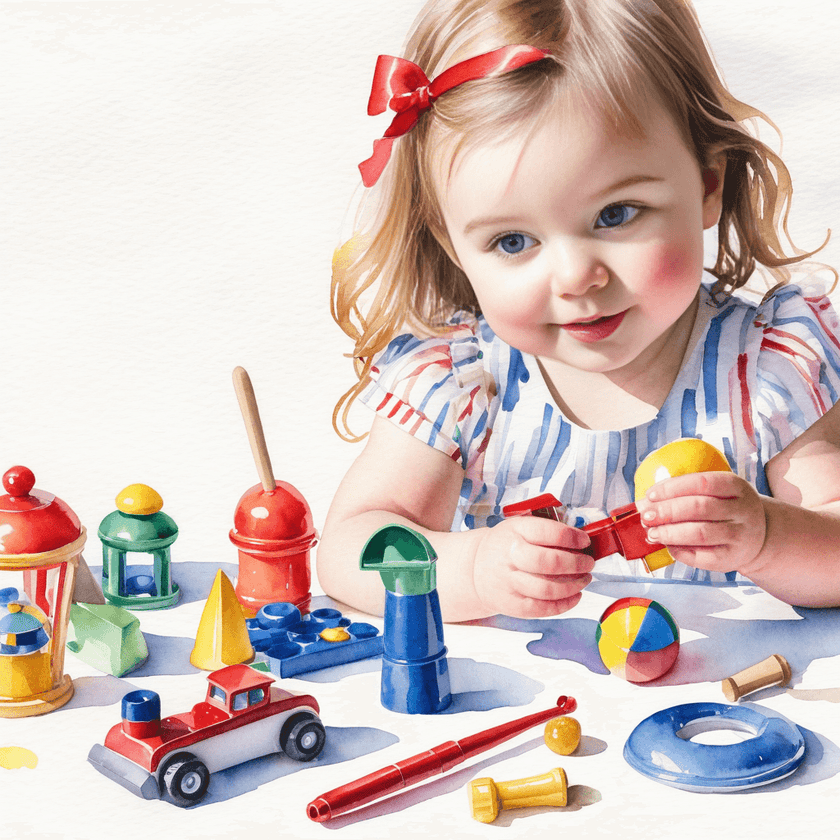Toys play a crucial role in the early childhood development of children. They are not just objects for play, but tools that aid in the cognitive, physical, emotional, and social development of young minds. In this article, we will explore the significance of toys in a child's growth and why choosing the right toys is essential for their overall development.
Importance of Toys in Early Childhood Development
1. Cognitive Development
Toys are essential for stimulating a child's cognitive development. They help children learn about shapes, colors, numbers, and letters. Puzzles, building blocks, and educational toys can enhance problem-solving skills and promote critical thinking. Through play, children can explore cause and effect relationships, develop their memory, and improve their concentration.
2. Physical Development
Toys also play a vital role in promoting physical development in children. Toys such as balls, bicycles, and climbing structures help children develop their gross motor skills and coordination. Fine motor skills are enhanced through activities like drawing, cutting, and building with blocks. These physical activities not only strengthen muscles but also improve hand-eye coordination.
3. Emotional Development
Toys can have a significant impact on a child's emotional development. Dolls, stuffed animals, and puppets can help children express their feelings and develop empathy. Role-playing with toys allows children to understand different emotions and learn how to interact with others. Additionally, toys provide a sense of comfort and security, especially during times of stress or anxiety.
4. Social Development
Toys are instrumental in fostering social skills and promoting social interaction among children. Board games, pretend play sets, and cooperative toys encourage teamwork, sharing, and communication. Through playing with others, children learn important social skills such as taking turns, resolving conflicts, and cooperating with peers. These interactions help children build relationships and develop a sense of belonging within a group.
5. Sensory Development
Toys that stimulate the senses, such as toys with different textures, colors, and sounds, can aid in sensory development in children. Sensory play is crucial for young children as it helps them explore the world around them and understand how things work. Toys like sensory bins, playdough, and musical instruments can provide children with sensory experiences that promote learning and development.
6. Parental Involvement
While toys are essential for a child's development, parental involvement is equally important. Parents can play with their children, engage in imaginative play, and provide guidance and support during playtime. This interaction not only strengthens the parent-child bond but also enhances the child's learning experience.
7. Gross Motor Skills
Toys that require physical activity, such as balls, ride-on toys, and building sets, help in the development of fine and gross motor skills. Fine motor skills involve the use of small muscles, like those in the hands and fingers, while gross motor skills involve larger muscle groups, like those in the arms and legs. Toys that involve stacking, sorting, and building can help improve fine motor skills, while toys that involve running, jumping, and climbing can enhance gross motor skills.
Choosing the Right Toys for Early Childhood Development
When selecting toys for young children, it is essential to consider their developmental stage and individual interests. Here are some tips for choosing the right toys for early childhood development:
1. Age-Appropriate Toys
Select toys that are suitable for your child's age and developmental level. Toys that are too advanced may frustrate a child, while toys that are too simple may not challenge them enough. Look for age recommendations on toy packaging to ensure you choose the right toys for your child.
2. Educational Value
Choose for toys that offer educational value and promote learning. Look for toys that encourage creativity, problem-solving, and skill development. Building toys, art supplies, and science kits are excellent options for stimulating a child's curiosity and imagination.
3. Safety
Prioritize safety when selecting toys for young children. Choose toys that are made from non-toxic materials and do not pose choking hazards. Check for any small parts that could be easily swallowed and ensure that the toy is durable and well-constructed.
4. Variety
Provide a variety of toys that cater to different aspects of development. Include toys that promote physical activity, cognitive skills, imaginative play, and social interaction. Rotating toys regularly can keep children engaged and prevent boredom.
Toys play a vital role in the early childhood development of children. By choosing the right toys that are age-appropriate, educational, safe, and diverse, parents can support their child's development and provide them with enriching play experiences. Remember, play is not just a way for children to pass the time – it is a fundamental aspect of their development and should be nurtured and encouraged.



 DimpleBee.
DimpleBee.